03:45
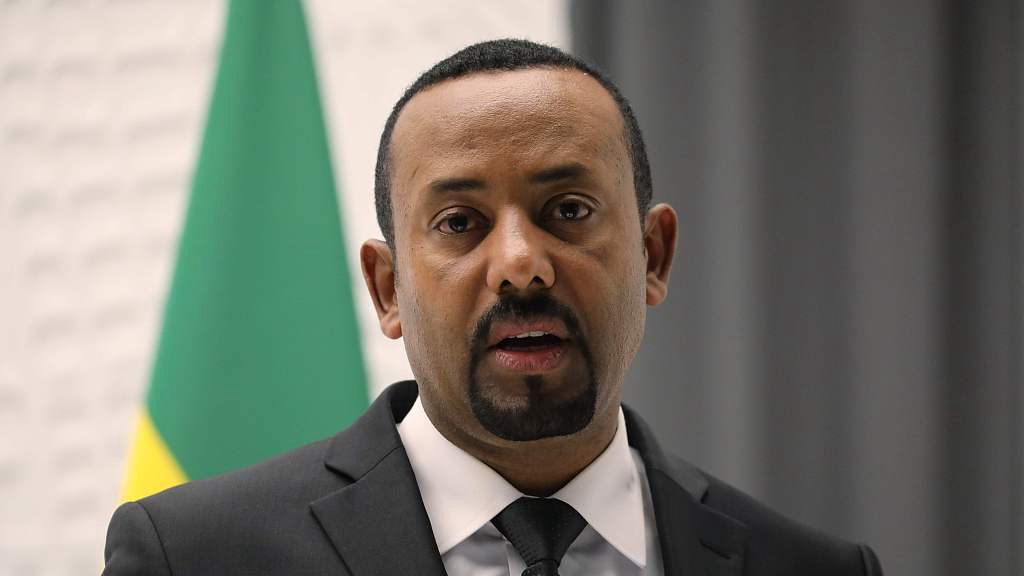
The 2019 Nobel Peace Prize has been awarded to Ethiopian Prime Minister Abiy Ahmed for his peacemaking efforts with Eritrea. The Nobel committee made the announcement on Friday at the Norwegian Nobel Institute.
"Ethiopian Prime Minister Abiy Ahmed Ali has been awarded this year's Nobel Peace Prize for his efforts to achieve peace and international cooperation, and in particular for his decisive initiative to resolve the border conflict with neighboring Eritrea," the Nobel Committee said in its statement.
Ethiopia and Eritrea, longtime foes who fought a border war from 1998 to 2000, restored relations in July 2018 after years of hostility.
The prize, worth nine million Swedish crowns, or around 900,000 U.S. dollars, will be presented in Oslo on December 10.
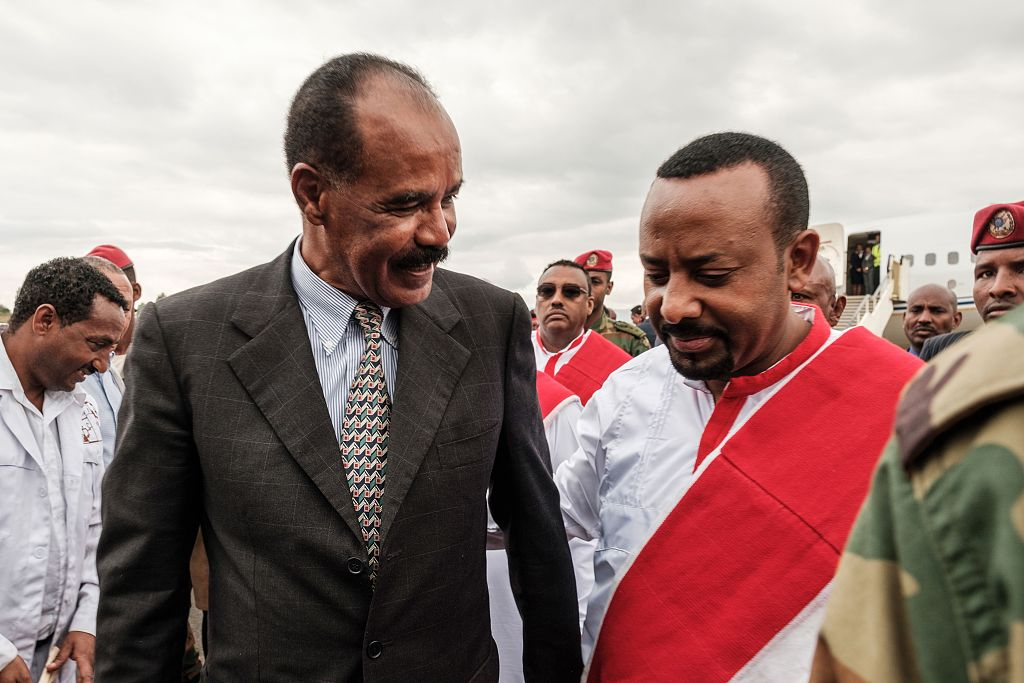
Ethiopia's Prime Minister Abiy Ahmed (R) welcomes Eritrea's President Isaias Afwerki upon his arrival at the airport in Gondar for a visit in Ethiopia, November 9, 2018. /VCG Photo
Ethiopia's Prime Minister Abiy Ahmed (R) welcomes Eritrea's President Isaias Afwerki upon his arrival at the airport in Gondar for a visit in Ethiopia, November 9, 2018. /VCG Photo
04:46
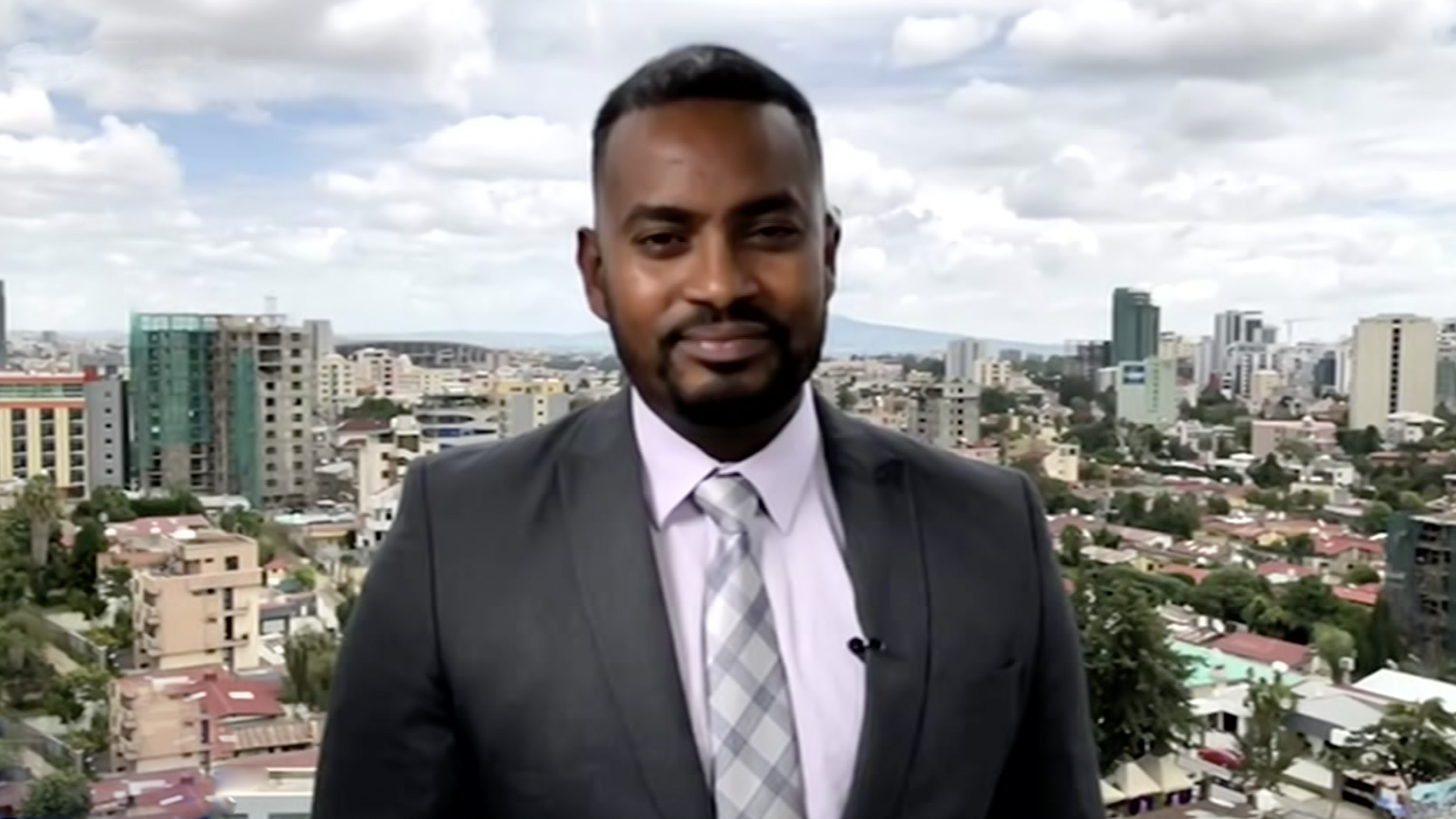
'Collective win for Ethiopians'
Abiy's office is pleased to "express our pride in the selection of Prime Minister Abiy Ahmed as the 2019 Nobel Peace Prize Laureate," according to a statement released by the Office of the Ethiopian Prime Minister.
Abiy "has made peace, forgiveness and reconciliation key policy components of his administration" since he assumed office in April 2018, the statement said, underscoring his efforts to release political prisoners and facilitate reconciliation between rival groups in Ethiopia and end the "two-decade stalemate" between his country and Eritrea.
"This victory and recognition is a collective win for Ethiopians, and a call to strengthen our resolve in making Ethiopia – the New Horizon of Hope – a prosperous nation for all," it added.
The 43-year-old prime minister has aggressively pursued policies that have the potential to upend his country's society and reshape dynamics beyond its borders.
Within just six months of his swearing-in, Abiy made peace with bitter foe Eritrea, released dissidents from jail, apologized for state brutality, and welcomed home exiled armed groups branded "terrorists" by his predecessors.
More recently he has turned to fleshing out his vision for the economy while laying the groundwork for elections currently scheduled to take place next May.
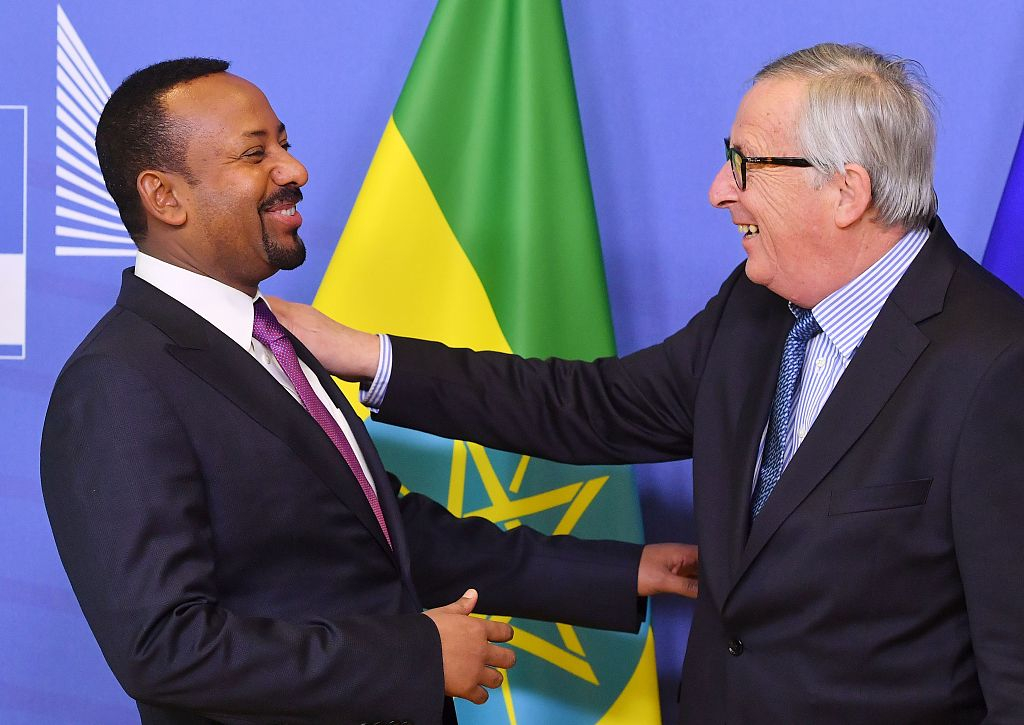
Ethiopia's Prime Minister Abiy Ahmed (L) is welcomed by European Commission President Jean-Claude Juncker in Brussels, January 24, 2019. /VCG Photo
Ethiopia's Prime Minister Abiy Ahmed (L) is welcomed by European Commission President Jean-Claude Juncker in Brussels, January 24, 2019. /VCG Photo
Humble roots and meteoric rise
Born in the western town of Beshasha to a Muslim father and Christian mother, Abiy "grew up sleeping on the floor" in a house that lacked electricity and running water.
"We used to fetch water from the river," he said in a wide-ranging radio interview with Sheger FM last month, adding that he didn't even see electricity or an asphalt road until the seventh grade.
Yet Abiy progressed quickly through the power structures created by the ruling coalition, the Ethiopian People's Revolutionary Democratic Front (EPRDF), after it took power from the Derg military junta in 1991.
Fascinated with technology, he joined the military as a radio operator while still a teenager.
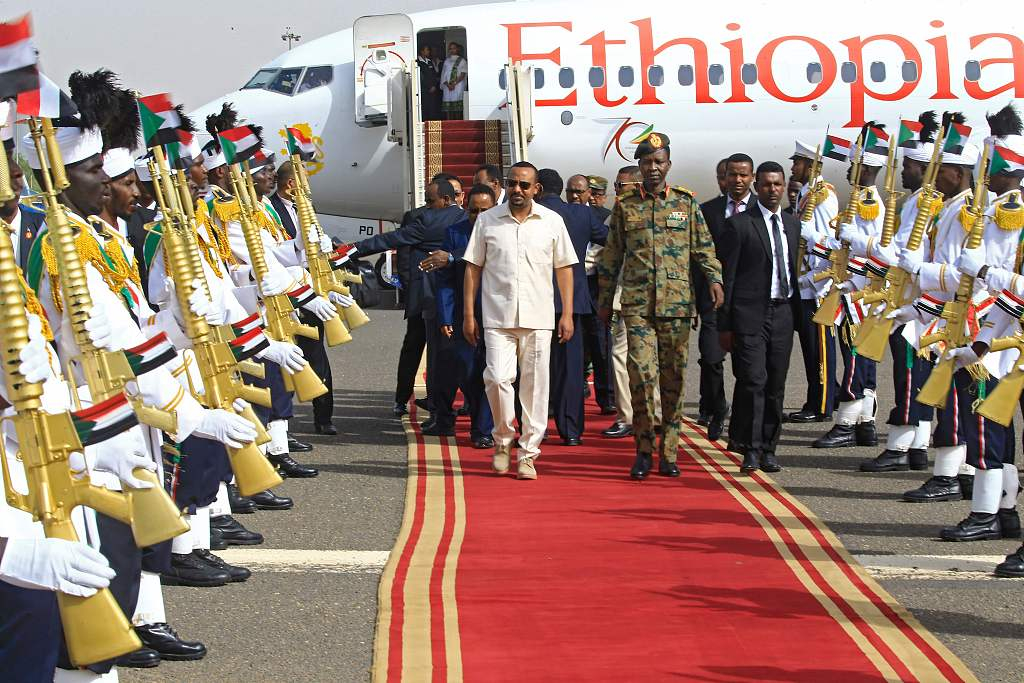
Ethiopia's Prime Minister Abiy Ahmed (C-L) arrives at Khartoum International Airport, Sudan, June 7, 2019. /VCG Photo
Ethiopia's Prime Minister Abiy Ahmed (C-L) arrives at Khartoum International Airport, Sudan, June 7, 2019. /VCG Photo
He rose to lieutenant-colonel before entering government, first as a securocrat – he was the founding head of Ethiopia's cyber-spying outfit, the Information Network Security Agency. He then became a minister in the capital Addis Ababa, and a party official in his home region of Oromia.
The circumstances that led to Abiy's ascent to high office can be traced to late 2015. A government plan to expand the capital's administrative boundaries into the surrounding Oromia region was seen as a land grab sparking protests led by the Oromo, Ethiopia's largest ethnic group, and the Amhara people.
States of emergency and mass arrests worked to quell the protests but failed to address the underlying grievances.
When then-Prime Minister Hailemariam Desalegn abruptly resigned in early 2018, many feared a power-struggle within the EPRDF, or even an unravelling of the coalition that would leave a dangerous vacuum. Instead, the coalition's member parties chose Abiy to become the first Oromo prime minister.
Beyond the rapprochement with Eritrea, he has played a leading role in mediating Sudan's political crisis and has also tried to revive South Sudan's uncertain peace deal, though whether any of these initiatives will ultimately succeed is an open question.
(With input from AFP, Reuters)